"Imagination is more important than knowledge. Knowledge is limited. Imagination encircles the world."
The Power of Thought Experiments
Imagine standing at the edge of a cliff, contemplating the vastness of the universe. You close your eyes and picture yourself floating through space, witnessing the birth and death of stars. This simple act of imagination is more than just daydreaming – it's a thought experiment, a mental voyage into uncharted territories of possibility, where the constraints of physical reality melt away, allowing our minds to soar beyond the boundaries of the known.
Take a moment now. Close your eyes and imagine a world where gravity suddenly reversed. What would happen? How would society adapt? This is the power of a thought experiment – it instantly engages your mind in creative problem-solving.
Thought experiments are like mental laboratories where we can test ideas without the constraints of physical reality. From Einstein's relativity to Schrödinger's cat, these mental exercises have revolutionized science, philosophy, and our understanding of the world.
What are thought experiments? They're mental explorations. They push boundaries. They challenge assumptions. In essence, they're the playground of our intellect. A thought experiment can be defined as a structured mental exercise used to explore the potential consequences of a hypothesis, theory, or principle. For example, Einstein's famous thought experiment of chasing a light beam led to the development of special relativity, fundamentally changing our understanding of space and time.
The Generalist Mindset: A Key to Discovery
To truly harness the power of thought experiments, we must cultivate a generalist mindset. This approach is like being a mental Swiss Army knife – equipped with a diverse set of tools to tackle any problem. A generalist thinker draws connections between seemingly unrelated fields, finding inspiration in unexpected places.
Consider Leonardo da Vinci, the quintessential Renaissance man. His ability to blend art, science, and engineering led to groundbreaking inventions and artistic masterpieces. By adopting a generalist mindset, we open ourselves to a world of possibilities and increase our chances of stumbling upon revolutionary ideas.
As renowned physicist Richard Feynman once said, "The real problem in speech is not precise language. The problem is clear language. The desire is to have the idea clearly communicated to the other person. It is only necessary to be precise when there is some doubt as to the meaning of a phrase." This principle applies equally to thought experiments – the goal is clear, creative thinking, not rigid adherence to established norms.
The generalist mindset enhances our ability to conduct effective thought experiments by providing a diverse knowledge base from which to draw analogies and connections. For instance, a generalist thinker might combine principles from biology and economics to imagine how a society might function if it were organized like an ecosystem, leading to novel insights in urban planning or social policy.
Key Takeaways: • A generalist mindset broadens your intellectual toolkit • Diverse knowledge fuels more creative thought experiments • Cross-disciplinary thinking leads to novel insights
The Top Articles of the Week
100% Humanly Curated Collection of Curious Content
Thought Experiments in Action: Historical examples
Throughout history, thought experiments have been catalysts for paradigm shifts in human understanding. Let's explore a few examples:
Newton's Cannon: Orbiting the Earth in Mind
Isaac Newton proposed a thought experiment involving a cannon powerful enough to fire a cannonball around the entire Earth. This mental exercise helped him understand the nature of orbital motion and gravity, laying the groundwork for his laws of motion and universal gravitation.
Einstein's Light Chase: Reimagining Space and Time
As a teenager, Albert Einstein imagined chasing after a beam of light. This simple thought experiment eventually led to his theory of special relativity, revolutionizing our understanding of space and time.
Rawls' Veil of Ignorance: Designing a Just Society
In political philosophy, John Rawls proposed imagining a society where individuals don't know their place in it. This thought experiment helps us consider principles of justice and fairness from an unbiased perspective.
Applying Thought Experiments to Modern Problems
Today, we face complex challenges that require innovative solutions. Thought experiments can be powerful tools in addressing these issues:
- Climate change: Imagine a world where carbon dioxide is visible as a thick, dark smoke. How would this change our perception and behavior regarding emissions? This thought experiment can help us visualize the impact of our actions on the environment.
Picture the acrid smell of CO2 'smoke' filling your nostrils as you start your car, the dark haze obscuring your vision as you drive down the street. If CO2 were visible as dark smoke, it might lead to immediate behavioral changes. People might choose to walk or cycle more often, seeing the 'smoke' emitted by their cars. Companies might face public pressure to reduce their visible emissions, potentially accelerating the transition to clean energy. This thought experiment helps us understand the power of making the invisible visible in addressing environmental challenges.
- Artificial Intelligence ethics: Consider a scenario where AI becomes self-aware. What rights should it have? This mental exercise forces us to grapple with questions of consciousness, personhood, and the nature of intelligence.
- Economic inequality: Picture a society where everyone swaps economic status randomly each year. How would this change our approach to wealth distribution and social policies?
Challenge yourself: Create a thought experiment about a current global issue. How might it reshape your understanding or approach to the problem?
The Impact on Simulations and Problem-Solving
Thought experiments are not just abstract exercises; they have practical applications in simulations and problem-solving. While computer simulations are not thought experiments themselves, they often originate from and extend the principles explored in thought experiments.
- Computer Simulations: Many thought experiments can now be modeled using advanced computer simulations. For example, climate scientists use complex models to predict the long-term effects of global warming, turning abstract concepts into tangible projections.
- Business Strategy: Companies often use scenario planning, a form of thought experimentation, to prepare for various future outcomes. This helps them develop robust strategies that can adapt to changing circumstances.
- Scientific Research: Before conducting expensive or dangerous experiments, scientists often use thought experiments to refine their hypotheses and experimental designs. This saves time, resources, and potentially lives.
In medicine, thought experiments help researchers envision new treatment approaches. For instance, the idea of using mRNA to create vaccines was first explored through thought experiments long before it became a reality with COVID-19 vaccines.
Incorporating Thought Experiments into Daily Life
You don't need to be a philosopher or scientist to benefit from thought experiments. Here are some ways to incorporate this practice into your daily life:
- Decision-making: When faced with a difficult choice, imagine yourself in each possible outcome. How do you feel? What are the long-term consequences? This can help clarify your priorities and values.
Consider Sarah, a software developer, who used a thought experiment to solve a coding problem. She imagined her program as a physical machine, with data flowing through pipes and gears. This mental image helped her identify a bottleneck in her algorithm, leading to a more efficient solution.
- Problem-solving: When tackling a challenge, ask yourself, "What would happen if this constraint didn't exist?" or "How would someone from a completely different field approach this?" These questions can lead to innovative solutions.
- Empathy building: Regularly engage in perspective-taking exercises. Imagine yourself in someone else's shoes, facing their challenges and seeing the world through their eyes. This can enhance your emotional intelligence and interpersonal skills.
- Creativity boost: Set aside time for "what if" sessions. Let your imagination run wild with impossible scenarios. This can stimulate creativity and lead to unexpected insights in your work or personal life.
A Wise Investment of Your Time
List of YouTube videos that captured my undivided attention.
Embracing the Experimental Mindset
As we've explored, thought experiments are more than just mental gymnastics – they're powerful tools for discovery, problem-solving, and personal growth. By embracing a generalist mindset and regularly engaging in these mental explorations, we can expand our understanding of the world and ourselves.
In a rapidly changing world, the ability to think critically and creatively is more valuable than ever. Thought experiments provide a framework for developing these skills, allowing us to navigate complexity and uncertainty with greater confidence.
Thought experiments develop critical and creative thinking skills by encouraging us to question assumptions, explore counterfactuals, and synthesize ideas from different domains. For example, regularly engaging in 'what if' scenarios trains our minds to consider multiple perspectives and outcomes, enhancing our problem-solving abilities in both personal and professional contexts.
So, the next time you're faced with a challenging problem or simply want to expand your mental horizons, take a moment to close your eyes and dive into a thought experiment. You never know where your mind might take you – perhaps to the next great discovery or innovation that could change the world.
Remember, every groundbreaking idea started as a simple "what if" in someone's mind. By cultivating the habit of thought experimentation, you're not just exercising your brain; you're potentially shaping the future. So, let your imagination soar, challenge your assumptions, and embrace the power of thought experiments in your quest for knowledge and understanding.
Your challenge now: Create your own thought experiment.
Push the boundaries of your imagination. Who knows? Your mental journey might just lead to the next world-changing idea.

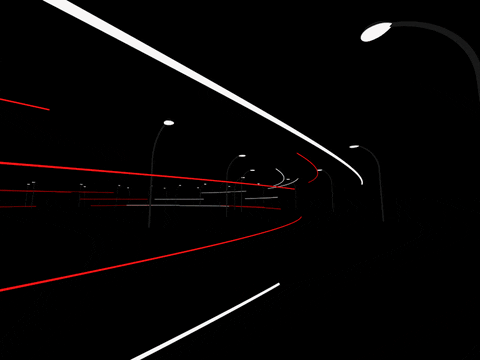
Knowware — The Third Pillar of Innovation
Systems of Intelligence for the 21st Centurty
"Discover the future of intelligence with 'Knowware.' Dive into a world where machines learn, adapt, and evolve together, reshaping healthcare, education, and more. Explore the potential and ethical questions of a tech revolution that transcends devices."
— Claude S. Anthropic III.5
Don't forget to check out the weekly roundup: It's Worth A Fortune!



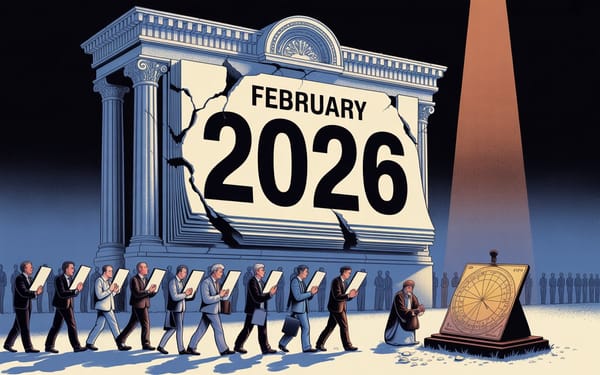
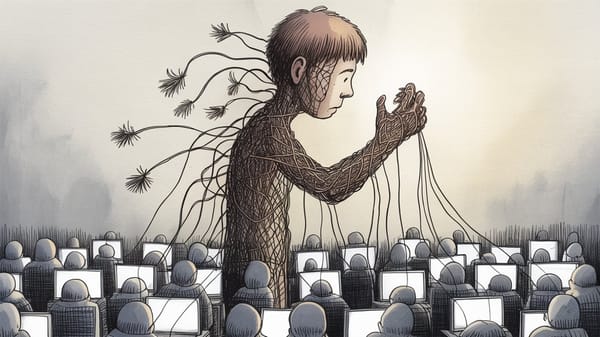
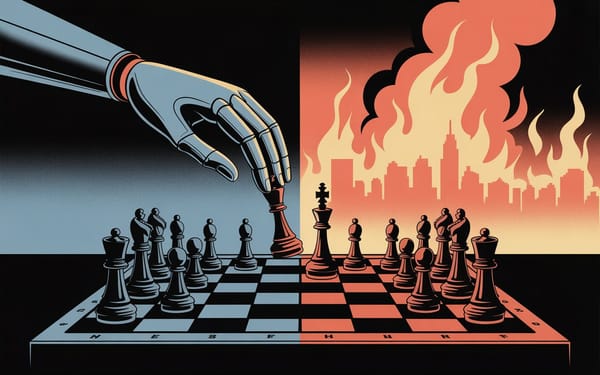
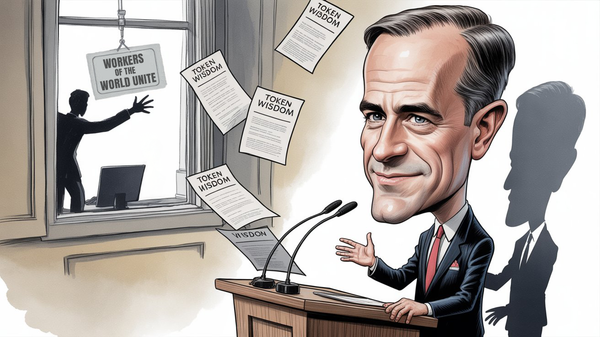
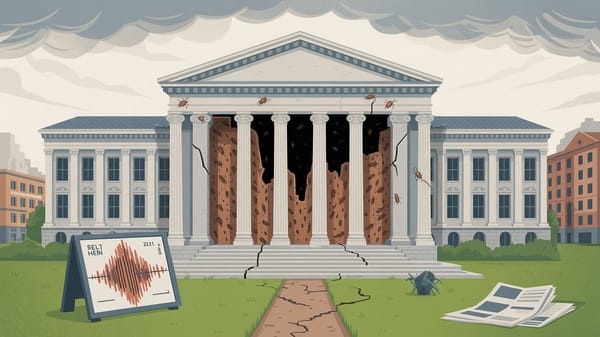
Member discussion